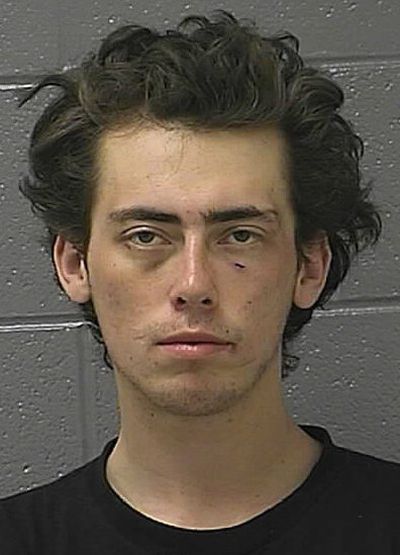Girlfriend convicted of murdering Spokane man

Three witnesses put the gun in her boyfriend’s hand either during or immediately after a Spokane man was shot last December following a bizarre altercation. But Melinda R. Barrera admitted pulling the trigger and a jury convicted today her of second-degree murder while acquitting her boyfriend of all charges.
Barrera faces about 15 years in prison and was detained pending sentencing. Despite his acquittal, 22-year-old David C. McLaughlin was not released. He still has two drug delivery felonies pending and a recent federal indictment for a gun charge, his attorney said.
The split decision followed a three-week trial in which Deputy Spokane County Prosecutor Sharon Hedlund charged McLaughlin and Barrera with both intentional second-degree murder and second-degree murder in commission of a felony, second-degree assault.
The jury acquitted Barrera of intentionally killing 47-year-old Robert A. Nelson, but found her guilty of killing him during a felony assault.
“The jury found her guilty of the assault, but they didn’t see him as the accomplice, which was my biggest fear,” said McLaughlin’s attorney, Tom Krzyminski.
Thursday started with attorneys replacing one juror who had been promised that he would be allowed to attend his pre-scheduled vacation. That prompted attorneys to call in an alternate and have the jury re-start its deliberations in the case in which attorneys said virtually every witness admitted lying to police.
According to testimony, Barrera – who knew Nelson well – tried to intervene in a shouting argument on Dec. 7 between Nelson, who was listed at 6-foot-2, 312 pounds, and a 15-year-old runaway girl. During that argument, Nelson hit Barrera over the head with a phone. Barrera then sent another man to summon her boyfriend, McLaughlin, who arrived with an aluminum bat.
After asking Nelson whether he struck his girlfriend, McLaughlin admitted hitting or poking the bat into Nelson’s chest. The autopsy revealed a round bruise, consistent with being hit with the end of the bat.
Three witnesses said they saw McLaughlin with the gun in his hand immediately after the shot was fired. But during questioning by Detective Marty Hill, Barrera saw officers bring in McLaughlin and she immediately said she fired the shot and would sign a confession.
On the witness stand, Barrera said she tried to intervene in the argument while brandishing a gun and aiming it at Nelson, who went into his bedroom. She said she pulled the trigger by accident and thought the gun was aimed at Nelson’s closet. Nelson continued to talk behind his bedroom door following the shot so no one knew he had been shot until police arrived, having been summoned by phone call from the dying Nelson.
Prior to the shooting, Barrera said Nelson was more angry than usual while describing a scene where many drug users freely came and went.
“Up until that point, I thought I could calm him down,” she said. “I didn’t want to shoot him.”
Hedlund, the deputy prosecutor, pressed Barrera on her description that she somehow was a “mother hen” of the neighborhood, who was willing to help those in need.
“You are the enforcer in that neighborhood,” Hedlund said, to which Barrera responded: “No. That is not correct.”
Defense attorneys Derek Reid and Krzyminski both told the jury on Monday that investigators failed to show that either suspect intended to kill Nelson or even met the element of “substantial bodily harm” that is required of the lesser charge of second-degree assault stemming from the altercation that preceded the shooting.
“A murder charge is a big deal. Wouldn’t you expect the investigation to be thorough, complete – looking at all possible explanations?” said Krzyminski, who represented McLaughlin. “This is an opportunity to hold the state accountable for bringing these charges.”
Reid pointed out to the jury that Spokane Police detectives did not take the door with what appeared to be a bullet hole. They also didn’t gather evidence from marks on the plaster walls that defense attorneys argued could have been caused by a bullet ricochet. The gun was not tested for DNA to determine if McLaughlin ever handled the gun, as one witness testified, and neither suspect was checked for gunshot residue.
“They have a theory and not evidence. This is conviction by multiple choice,” Reid said. “That’s not how it works. They have to prove what happened.”
In her closing argument, Hedlund said the trial would have been unnecessary if Barrera and McLaughlin not intervened.
She said Nelson, who had methamphetamine in his system when he died, lived mostly secluded in the bedroom of his apartment at 1328 W. Dean Ave. Investigators found jars of urine among the clutter, which complicated efforts to find evidence, she said.
“Is there any evidence that anyone in that apartment was in any way scared of Mr. Nelson? Is there any evidence that they were acting to defense other persons when they could have called 911?” she asked the jury. “I would posit that the shooting is fairly clearly intentional.”